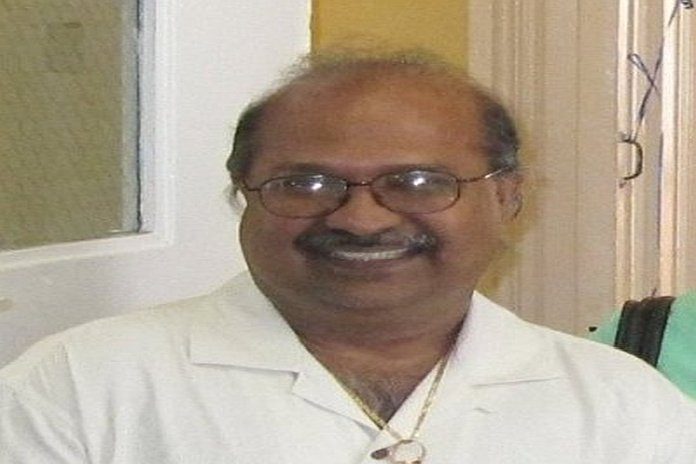By Annan Boodram – The Caribbean Voice (TCV)
The UK based cognitive-behavioral psychotherapist, Meera Baahu was recently quoted in the local Guyana media as saying that, ‘Cultural change, promoting greater awareness and acceptance of mental health is necessary for promoting good mental health locally.
In Guyana and the Caribbean, those working and volunteering on the mental health landscape are not only already aware of the need for greater awareness, sensitization, and education, but are actively engaged in delivering these necessities. And so, we wonder about the need to bring someone from the UK to inform of the obvious.
In the same vein, we also wonder why bring overseas ‘experts’ to spread misinformation and inaccuracies. After all, mental health issues are not the product of culture but social, economic and political realities and the consequential stressors and emotional/psychological deficits. This has been and continues to be borne out by the work of The Caribbean Voice and other stakeholders, supported by primary info gathered through various surveys and studies and the empirical evidence garnered through our workshops, outreaches, and varied interactions.
At the Third Caribbean Symposium on Suicide, held in May this year in Trinidad and Tobago, suicidologist, Dr Silvia Canetto of Colorado State University, presented a paper on ‘cultural scripts of suicidal behavior, the implicit and culturally specific blueprints for when, where and how people engage in suicidal behavior and how to respond to such behavior’.
However, Dr Canetto’s references are to societies that are significantly homogeneous, religious such as Islamic states, or tribal such as the Eskimos. Yet, as much as those scripts are ‘cultural’ they are more broadly social/societal because of the homogenous nature of the societies but the causes/triggers for suicide are same as obtaining globally – poverty and its attendant hopelessness; abuse, alcohol, drugs use, fatal illnesses and feelings of helplessness; the Werther Effect, depression and other mental illnesses (Suicide Among Inuit: Results From a Large, Epidemiologically Representative Follow-Back Study in Nunavut”; Eduardo Chachamovich and others).
The research and related literature reveal that similar findings exist for suicide in Islamic nations and among Indian farmers, for example.
Besides, Dr Canetto’s presentation made no references to integrated heterogeneous societies such as Guyana, Trinidad and Tobago and other Caribbean nations simply because her argumentation does not fit such mental health landscapes. In effect, it is not culture per se that drives suicide but overall social attitudes, which may become normative over time. Thus, all scripts of suicidal behavior are social/societal, transcending all groups – cultural, religious, ethnic, gender and otherwise.
The reality is that culture is being used as a scapegoat in lieu of concerted and comprehensive efforts to address mental health, as Caribbean nations provide miniscule budgetary allocations. In fact, most Caribbean nations allocate less than four percent of their health budget to mental health with only Suriname exceeding six percent at any given time”.
The Guyana National Mental Health Action Plan 2015-2020, states, “Complex socio-cultural factors and the presence of a mental disorder are likely very significant attributable risk factors.” However, “Risk factors for mental illness in Guyana are related to environmental, lifestyles, biological and psychosocial factors and include, social class, gender, racial conflicts, housing, occupational risks, access to services, smoking, limited national policies, globalization, macroeconomics, national politics, and urbanization.” There is nothing specifically cultural about these risk factors.
In effect, culture is used in an encompassing rather than a group-specific manner, making it clear that it is not cultural change itself that is required but the elimination of the risk factors on the one hand and the attitudes they spawn on the other.
As well, based on content analyses of the media, the related literature and empirical evidence mental health is not associated with culture in any way in Guyana or the rest of the Caribbean. In fact, other mental health plans that exist in the rest of the Caribbean – Trinidad and Tobago, Jamaica, Barbados, Suriname, Grenada, Bermuda, Belize, Montserrat, British Virgin Islands, and Turks and Caicos – do not identify culture, per se, as a significant factor impacting mental health issues.
Instead, they emphasize that it’s the social and economic environment and the risk factors they generate.
For example, Krim K Lacey et al (2016) in a study entitled, the relationship of social and economic factors to mental disorders among population-based samples of Jamaicans and Guyanese emphasized that “Studies have long found an association between socioeconomic status (SES) and health.”
The simple fact is that the ‘culture’ argument does not apply to the Caribbean. Thus, instead of giving scope and credence to flying visit ‘experts” who sow confusion and misinformation, is it not time to affirm and foster the work of those who are familiar with the realities that prevail?
It is these stakeholders who know that it’s not a cultural change that is needed but an attitudinal change at both the governmental and individual/community levels, which can only be catalyzed by all-stakeholders collaboration, spearheaded by the government, and reaching across the nation on an ongoing basis.
And instead of bringing ‘experts’ from overseas, who have very little or no grasp of the mental health realities of the Caribbean, local experts need to be affirmed and local stakeholders need to be empowered to make the critical difference.






